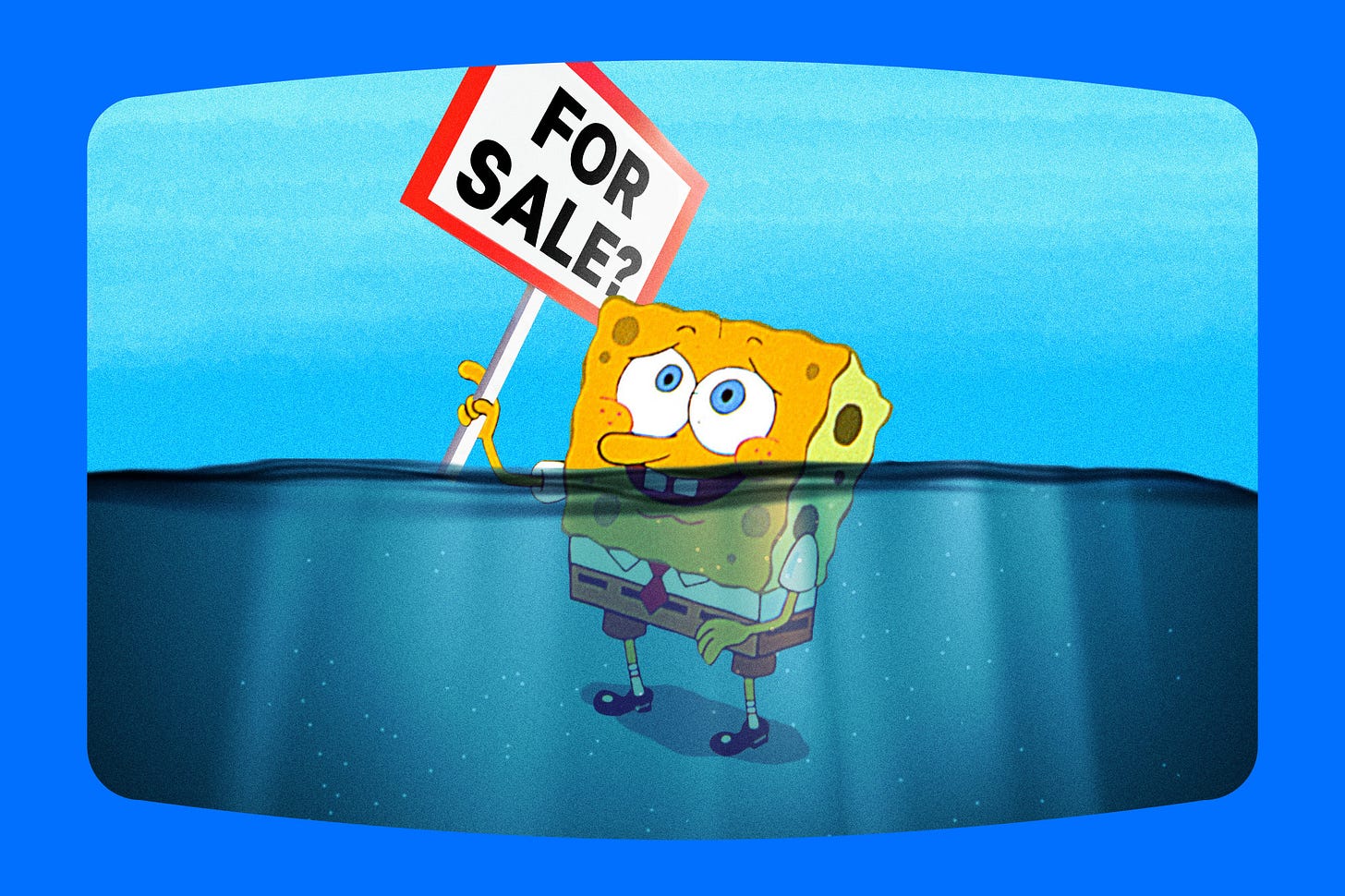The Grim Biz of Selling Off Cable TV — and the Surprise Buyers Circling
 SINK OR SWIM Nickelodeon is among the Paramount cable nets expected to be in play once the company’s merger with Skydance closes. (The Ankler illustration; image credits below)
SINK OR SWIM Nickelodeon is among the Paramount cable nets expected to be in play once the company’s merger with Skydance closes. (The Ankler illustration; image credits below)On July 13, 1985, MTV was at the center of the cultural zeitgeist as the basic-cable network broadcast the star-studded Live Aid benefit concert live in the U.S. Now, 40 years later, the flagship network no longer airs the music videos that once dominated its lineup and instead fills the vast majority of its schedule with episodes of Ridiculousness, its 14-year-old comedy clip show.
Yes, really.
As viewers cut the cord in favor of streaming subscriptions, some of television’s most well-known and successful brands — think MTV, USA Network, Comedy Central and TNT, to name a few — are now shells of their former selves.
It's no surprise, then, that MTV is among the Paramount assets expected to be spun off and sold once the media conglomerate’s merger with Skydance closes in less than three months. (Read my colleague Ashley Cullins’ report for more on what Hollywood dealmakers see ahead if and when the deal closes, plus my own column last week about the eagerly anticipated return of Cindy Holland in a top TV role at the new company.) MTV and its corporate siblings including Comedy Central, Paramount Network, Nickelodeon and premium cabler Showtime, among others, will then likely join a rapidly increasing roster of cable brands already on the block, either officially or presumptively.
NBCUniversal was first to officially spin off its cable brands with Versant, the Mark Lazarus-led offshoot comprised of MSNBC, CNBC, USA Network, Syfy, Oxygen, E! and the Golf Channel (the parentco held on to Bravo, a key feeder for its Peacock streamer).
Warner Bros. Discovery has charged finance chief Gunnar Wiedenfels with figuring out what to do with CNN, TNT, TBS, TruTV, Discovery, Animal Planet, Investigation Discovery, OWN, TLC, HGTV, Food Network, Cooking Channel, Cartoon Network, Adult Swim and several other cable brands that, in many cases, barely have any execs or original programming left.
More recently, A&E, Lifetime and History also hung “for sale” signs out front as A+E Global Media parent companies Disney and Hearst explore offloading those basic cable brands.
“A lot of these brands are done,” says one cable veteran who, like most other sources for this story, declined to go on the record. “There’s a handful of them that are doing a good job at staying relevant and a handful who may just have enough juice left in the tank to figure out how to get to the other side.”
So, which of the rapidly growing roster of cable brands that are up for grabs (or soon to be) have the greatest appeal for potential buyers? And who are the buyers that might roll the dice and try to reinvent the cable wheel? We polled a number of cable insiders past and present, plus investment pros with visibility into the space, to see which brands still have gas in the tank and who might be looking to scoop them up.
In this week’s newsletter, you’ll learn:
SCOOP: The surprising suitor CEOs circling the cable brands, including a potential power play for A+E Global Networks
The three cable brands Q Scores says are strongest in the market — and two “dying” giants losing relevance
Two outside players who experts say should call David Ellison to buy Nickelodeon
Why one UTA partner thinks TKO, Televisa, FanDuel and DraftKings could be wild card buyers
What genres of content can keep a cable network afloat
The blunt verdict from one veteran cable exec who calls the past decade “a train wreck”
Which private equity players may be poised to swoop in